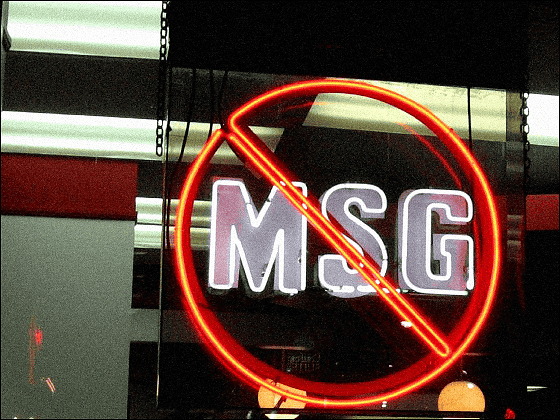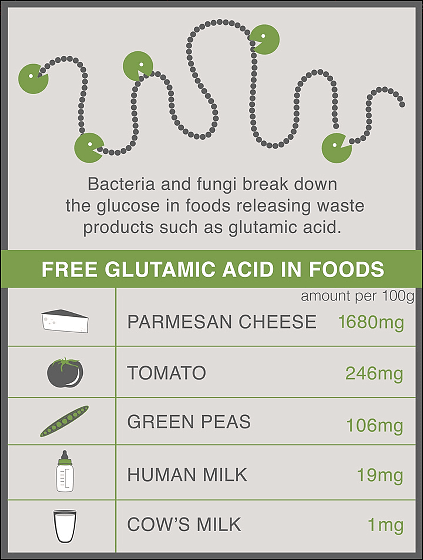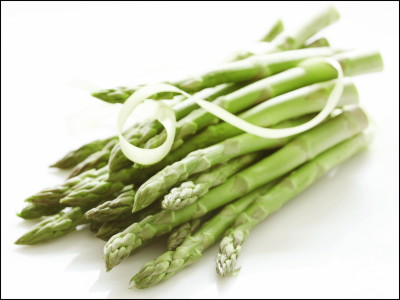Is it really bad for chemical seasonings that can feel the flavor just by sprinkling?

Umami seasoning, famous for Ajinomoto, is a chemical seasoning that can easily add "umami" to dishes, but does not it damage the health by taking a lot of intake? There is also the aspect that the argument that it is continuing to be late from long ago. The contents which studied whether such a chemical seasoning is really bad for the body were summarized and it was made public on the net.
The Notorious MSG's Unlikely Formula For Success
http://www.buzzfeed.com/johnmahoney/the-notorious-msgs-unlikely-formula-for-success
I am developing restaurants around New YorkMomofukuDavid Chang, the founder and chef of the group, has established a food laboratory as part of the group and is interested in fermenting foods by molds and fungi with Dan Felder, head of the laboratory I will. Mr. Chang says, "If there is no fermentation, we must live in a sad world where we can not eat fermented foods such as beer, cheese, miso, kimchi etc. that have become familiar for more than a century."
David and others discovered that by looking at Japanese miso, grinding beans such as pistachio, lentils, and chick peas, "hozon" in paste form, "tamari" similar to Japanese soy sauce can be made Then I named this manufacturing method "bonji". They are eager to research "fermentation technology" and "making pig cuts" with reference to bonito in Japan, but in particular, pay attention to "umami" obtained by fermentation.
There are various canned foods on the laboratory shelf, some of which are huge cannedMSG (Sodium glutamate) There is a chemical seasoning known as. MSG is a component that has been regarded as harmful, misunderstood in the history of food. However, the laboratory has made efforts to separate pure glutamic acid from the components of fermented beans in canned food in the past three years. Because human tongue has a taste bud that feels glutamic acid and food containing abundant glutamic acid is delicious, umami seasoning is distributed worldwide mainly in East Asia. Mr. David originally said that he was opposed to using MSG at his restaurant and he said that he was stopping using Mayonnaise of Kewpie, the favorite food for a while, personally. However, MSG's research and science over the past 10 years has meant that the misunderstanding that MSG is causing health hazards is beginning to be overturned.

Glutamate is one kind of 20 kinds of amino acids, which is a necessary ingredient for human body, but it is basically unnecessary to ingest from food, because it can be produced in the human body. In addition, glutamate is present in the body, as a very small 1,000 trillion glutamate which is an important neurotransmitter for iterative learning and memory in the brain, it passes through the synapse as an electric signal every stimulation of neurons.
FDA (US Food and Drug Administration)According to the announcement, we take 13 g of glutamic acid from food every day in three ways. The first is glutamic acid contained in protein, the second is some foods including free glutamic acid, cheese · tomato · seaweed, soy sauce etc. They do not bind to other amino acids in the protein, but make them feel umami on the tongue. Also, fermentation has the effect of increasing the amount of free glutamic acid originally contained in food. The third is from foods containing MSG in general, it is included in dolithos and snack cheese powder, Kentucky fried chicken and so on. The FDA estimates that intake of glutamate from MSG is around 0.5 g per day.

MSG is called "monosodium glutamate" because a single "glutamic acid ion" forms a salt by binding with a single "sodium ion". When I ingest MSG, saliva dissolves the sodium ion contained in the glutamate ion, and when free glutamic acid signals the brain, I realize that the brain is eating tasty food rich in protein.

An important person in the history of umami that is the source of MSG was a scientist at the University of TokyoIkeda KikuyoHe is. When I had dinner with my wife, I surveyed in the laboratory with the question "Why is the miso soup tasty?" As a trigger, and the basic taste of acid sweet salt bitterness felt from kelp and bonito dashi I named the taste ingredients other than "umami". Because Japan did not have carnivorous culture, it is thought that it was a method to efficiently ingest a small amount of protein contained in fish and vegetables, but I did not know the reason for feeling delicious when taking dashi. Mr. Ikeda continued his research on Dashi at the Institute of the University of Tokyo and discovered how to extract pure glutamic acid. Thus, Mr. Ikeda established "Ajinomoto", the company that sells the world's first MSG.

Ajinomoto began to be released in 1909, and it has been used in East Asian countries for several years. It is because it was a country with foods rich in umami, like Nampla of Thailand, Toubanjan of China, Kimchi of Korea, which are fermented foods such as Japanese dashi, soy sauce and miso.
MSG landed in the USA that was in the food boom in 1947, gathered popularity as a "taste arousal seasoning" and has been used until now. Confirmed the use for many processed foods including baby food in the 1960's. As human breast milk contains 19 mg of free glutamic acid in 100 g, babies are also looking for umami.

In April 1968The New England Journal of Medicineso"Chinese restaurant syndromeThe word "Robert Ho Man Kwok, doctor who wrote this article began to be used, and when I went to a Chinese restaurant at the time of eating out, the sensation loss on the back side of the neck, hands and back I began to feel the strange symptoms of pain, weakness of the whole body and palpitations. I doubted the allergy included in Chinese restaurant soy sauce, but it was the same as what I used at home excluded. Kwok wrote that due to the sodium concentration in the blood, it is suspected that a large amount of salt used for Chinese cuisine is caused, "but because it was taken up in NewYorkTimes," Chinese restaurant syndrome "became famous , One of the causes of increased misunderstandings for MSG.

University of WashingtonJohn Olney, a psychiatrist and a neuropathologist, is interested in the role of glutamate as a neurotransmitter and its influence upon concentration, and as a result of injecting a large amount of MSG into a freshly born mouse, brain damage It is famous for research that other problems were confirmed. He became a billboard for the anti-MSG world, and in the US gradually bashing to MSG began from this research result, Ajinomoto's stock price fell sharply, addition of MSG to baby goods was prohibited.

After that, in support of the research result, in 1972, Mr. Olney injected MSG into the brain of rhesus monkey as an experiment of primate action, confirming the lesion and abnormality. However, when another researcher conducted experiments using monkeys, he did not get the same result, he said that there was no change in glutamate level in the human brain relative to the diet including glutamate. "The brain does not take glutamate from the outside like a closed North Korea, all the necessary glutamate is made in the brain,"University of PrestonSamuel Wang, Associate Professor of Molecular Biology and Neuroscience, says.

Canned soup, caesar dressing, sausage, soy sauce, Kentucky fried chicken etc. which are processed foods including MSG are the same as food list to avoid high blood pressure, and not all foods are not without risk. It is displayed at the top when searching the net with MSGMSGTruth.orgAnd FDA do not mention that MSG's health damage is more risky than other foods.
David's restaurant uses kelp salt made by fermenting in its own company, but the kelp salt which is naturally fermented is called "gourmet", MSG with the same glutamic acid ingredient which is also produced by fermentation Why is it called "evil spirit"?
David is convinced that MSG will be used in the restaurant in the same way as salt and will release "Umami Spray" and "Umami Dust" from its website. Finally, Mr. David sprinkled glutamate on my meat sauce pasta at home to cook and ate to do the research results. Although the room temperature is rising due to the heat of cooking, although it feels the heat, "Is this homemade Italian cuisine syndrome? The fork advances, but nothing happens to my body".

Related Posts:
in Note, Posted by darkhorse_log







